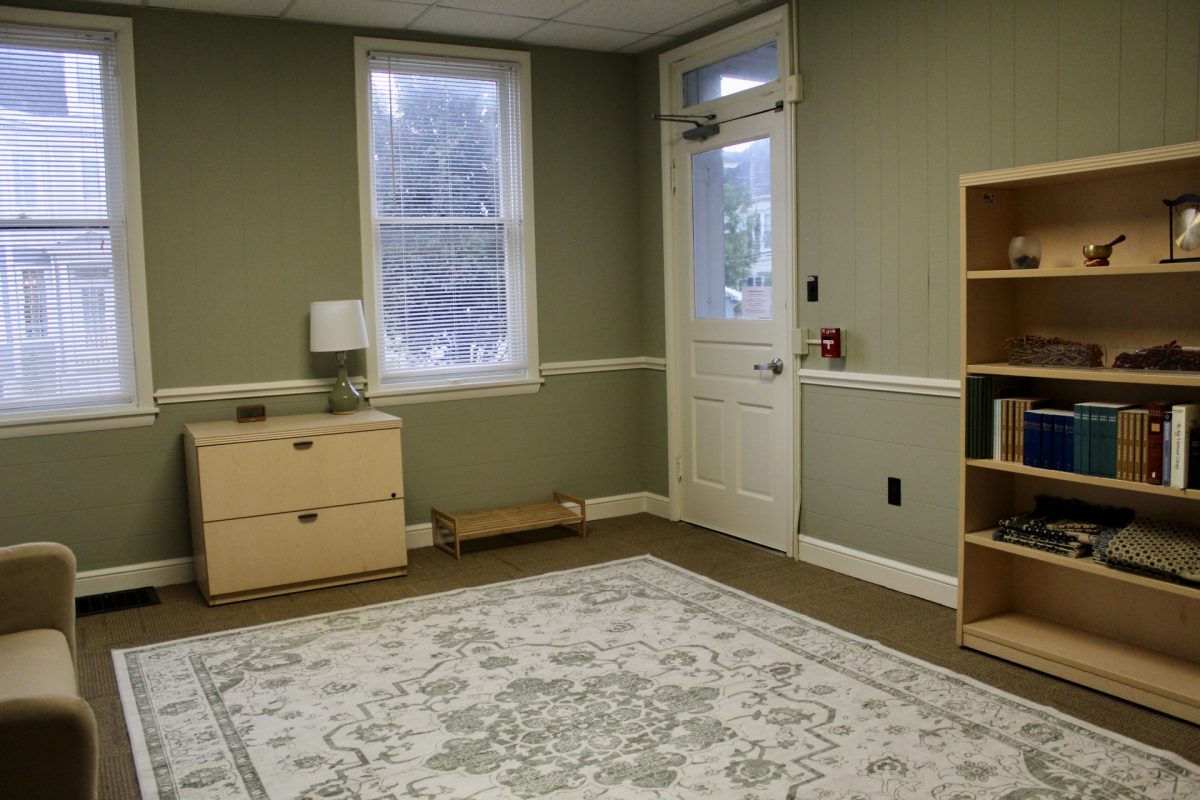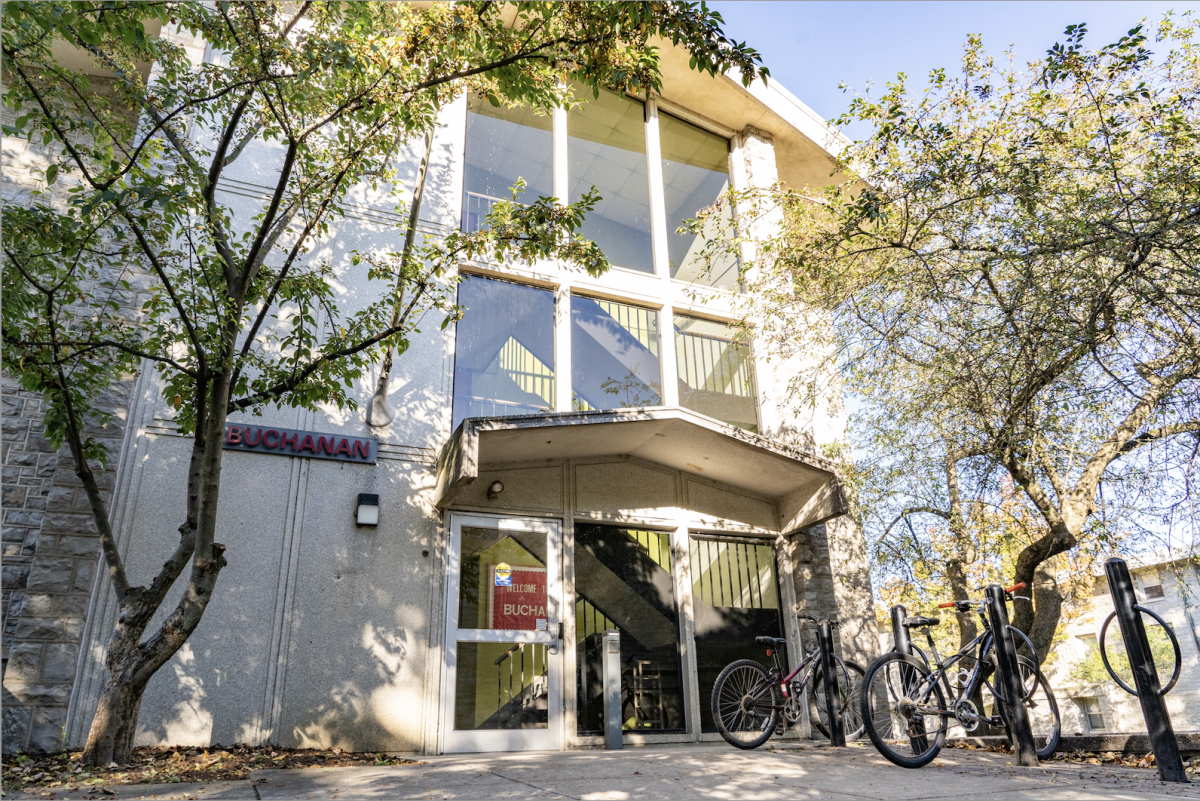The Clarke Forum celebrated Constitution Day, the anniversary of the ratification of the Constitution, on Sept. 17 with the annual Winfield C. Cook Constitution Day Conversation, “Picturing the Constitution: Curators, Artists and Scholars in Conversation.” The forum featured Katherine Gressel, Bang Geul Han and Steven Maize. The event focused on art inspired by the Constitution and the influence the Constitution has on daily life.
Katherine Gressel is the curator of Stone House & Washington Park, an art exhibit in Washington Park, New York City. Currently, the Stone House & Washington Park features “Picturing the Constitution,” a show that focuses on personal interpretations of the Constitution and the current political climate, particularly abortion and voting rights.
The goal of the show is to demonstrate how artists contribute to the daily conversations surrounding the Constitution, and it was inspired by the current atmosphere surrounding the Supreme Court and the 2024 presidential election. Gressel acted as a moderator for the conversation at the Clarke Forum and introduced the works of art featured in the show.
Bang Geul Han, an artist featured in the show, was born and raised in South Korea and currently works in New York City. She specializes in video, performative art, coding and weaving. Her pieces featured in the “Picturing the Constitution” are made of woven shredded paper. She focuses on reproductive injustices and Dobbs v. Jackson Women’s Health Organizatio,n the case that overturned Roe v. Wade.
Han uses the 65 page decision from Dobbs in her work. After shredding the pages, she then glued them to reinforce her work and weaves the pieces into detailed cloth. Han has created a series of photographs where she is seen wearing the pieces doing everyday tasks such as sleeping or using the bathroom. “I look at the texts as an extension of the body,” said Han.
The goal is to demonstrate that these rulings impact our bodily functions every day, as a piece of clothing would, and by wearing them you can feel the “material injustice,” as Han reffered to it as. It is a material manifestation of the controversial decision. Han focuses on those forgotten by the Constitution, in hopes of one day being represented.
Steven Maize, a constitutional scholar, is currently a professor at Bard High School Early College in Manhattan, New York. Maize serves The Economist news publication as their Supreme Court correspondent. Maize opened his portion of the conversation by defining the Consitition as a palimpsest, which is a piece of writing material that has been reused, often writing over or erasing earlier writings. Although parts of the Constitution haven’t been erased or written over, the U.S. has made 27 amendments to change the existing Constitution.
Maize argues that the Constitution is a palimpsest of our history. It is a living documentation of what our country believes in and what we have been through. Through each Supreme Court decision, we have a new and reimagined country. “Every act of interpretation is an act of creation,” said Maize, and through these interpretations, the Supreme Court has had the power to completely change our country, especially in the past eight years.
Maize demonstrated his expertise throughout the night, and although he does not directly participate in the art world, as a consumer and expert in constitutional matters, he welcomed the controversy of the Constitution.




